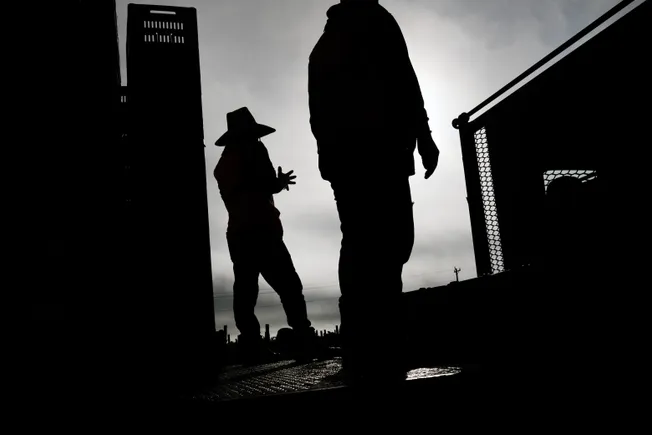Dive Brief:
- The Department of Labor is closer to publishing a rule to protect farm, construction and other outdoor workers from hazards related to heat stress and illness while on the job.
- On April 24, the OSHA Advisory Committee on Construction Safety and Health unanimously recommended that OSHA “move forward expeditiously” on a notice of proposed rulemaking for a new heat standard. As part of the rulemaking progress, OSHA will continue to seek input from stakeholders and the public.
- As the agency makes progress on rulemaking, it said it will be prioritizing heat-related inspections in agricultural industries that employ temporary H-2A workers for seasonal labor.
Dive Insight:
Every year, dozens of workers die and many more suffer serious injuries from heat illness while on the job, especially in industries like agriculture and construction, according to OSHA.
“No worker should have to get sick or die because their employer refused to provide water, or breaks to recover from high heat, or failed to act after a worker showed signs of heat illness,” Parker said in a release about the rulemaking advancement.
In states such as Texas and Florida, water breaks have been a hot topic, as governments restrict municipalities from creating requirements. The reason for nixing water break mandates is to prevent varied or complex ordinances across localities for companies to navigate, advocates say.
The agency does have a National Emphasis Program for heat-related hazards that it launched in 2022. The program inspects workplaces with high heat-hazard exposure in order to protect workers from falling sick. OSHA has conducted nearly 5,000 such inspections since the launch, it said.
Employers are required to protect workers from the dangers from heat exposure and should have a proper safety plan in place, at a minimum providing cool water, rest and shade, OSHA said. The agency has focused its efforts around upping enforcement in the agriculture industry, where H-2A workers are especially at risk of heat stress due to vulnerabilities such as language barriers and less control over their living and working situations.
With no actual heat standard in place, however, enforcement is murky for OSHA and citations fall under the broad general duties clause, saying companies have the duty to provide employees with a workplace free from hazard. Still, no specific hazard means that companies won’t face increased fines for repeat violations like they may for repeatedly exposing workers to falls without protection or failing to provide personal protective equipment.
Sarah Zimmerman contributed to this story.



